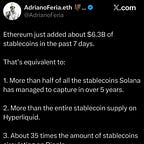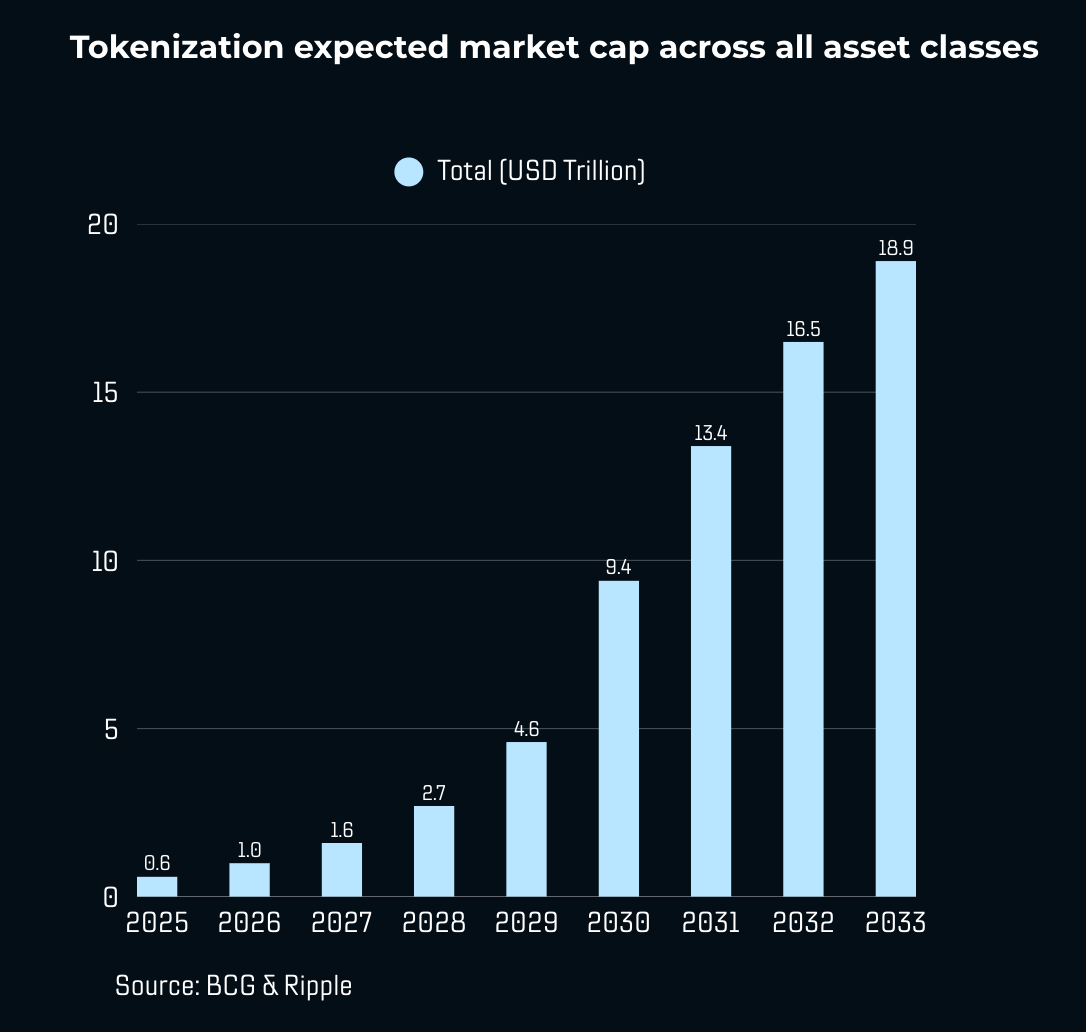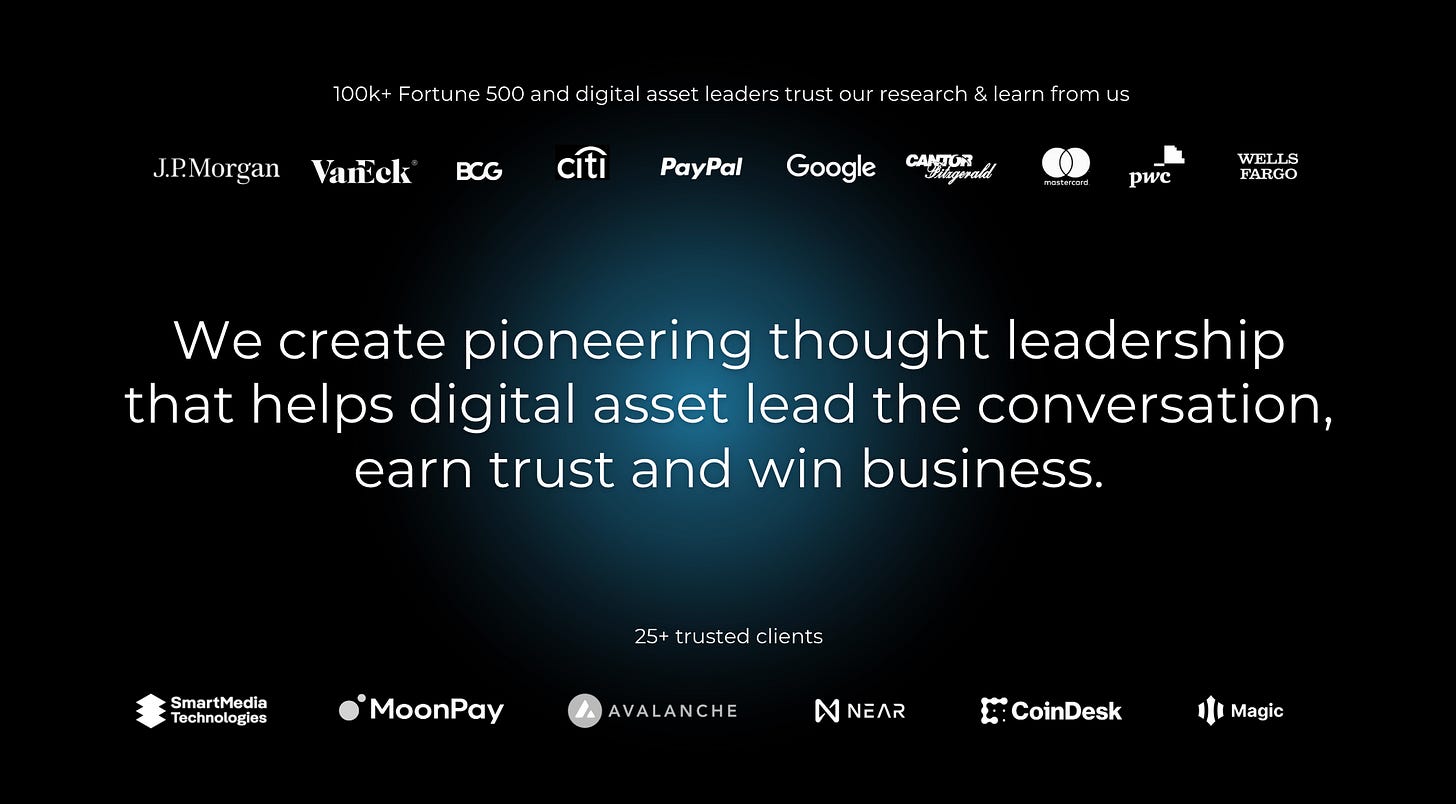Today, Jack Ma's Yunfeng Financial Group bought $44M of ETH.
Coincidence? No.
10 years ago, Maja Vujinovic, blockchain pioneer and CEO of FG Nexus (NASDAQ: FGNX), launched the first trade finance deal between J.P. Morgan and General Electric on Ethereum.
She brought in Joseph Lubin, co-founder of Ethereum & Chairman of SharpLink, to execute on her vision:
"Ethereum will be the backbone of tomorrow's financial system. Smart contracts will be our future."
This is playing out now.
Today, Joseph Lubin, says: "Ethereum will 100x from here".
ETH ETF inflows hit $1.8B last week — 10x more than Bitcoin ETFs.
What’s going on?
Two things:
1) ETH as a settlement layer
We're rapidly moving towards what many people call the "on-chain economy".
where assets run on a blockchain. Money. Stocks. Bonds. Fame.
There will be markets for everything.
Right now, we’re in a race to control the rails of this new financial system.
And whoever wins, owns the money:
Centralized: Stripe , Circle, Google, etc.
They thrive on speed, distribution, integration.
Decentralized: Ethereum, Avalanche , Solana, Ripple, etc.
They thrive on trust. They are credibly neutral infrastructure.
The catch?
Corporate chains can't solve the trust problem that blockchain was built to fix.
This is why, right now, nothing settles on centralized rails.
Everything settles on decentralized rails.
And Ethereum owns a huge part of that:
Both of these markets are expected to EXPLODE.
Who's going to capture that value?
Everyone who holds ETH.
"Corporate chains are AOL in 1995: fast, distribution-heavy, but walled gardens. Ethereum is TCP/IP: messy, neutral, unstoppable. One’s a toll road. The other is becoming a highway system for global finance",
says Maja.
(Further reading: The Great Chain Debate)
2) ETH as a reserve asset
→ 3-4% staking yields (vs. 0% ETFs)
→ Direct access to DeFi yields and liquidity
In short: Etherem is a productive asset with cash flows.
This is why "treasury companies" are racing to acquire ETH:
BitMine: $8.1B (1.9M ETH)
SharpLink (SBET): $3.6B (Joseph Lubin)
FGNexus (FGNX): $200M (Maja Vujinovic)
And they're buying more every day. Maja Vujinovic nailed it:
"The real story isn’t corporate L1 launches. It’s that Nasdaq-listed firms are adding billions in ETH to their balance sheets, staking it, restaking it, turning it into productive collateral. That’s what will anchor the on-chain economy,"
Meanwhile, Joseph Lubin posts:
“Wall Street will need to [be] operating on decentralized rails. That means staking, running validators, operating L2s/L3s, participating in DeFi, and writing smart contracts for financial instruments. Ethereum will replace much of the many siloed stacks they operate on"
Of course, they're talking their own books.
But they have a point:
When governments issue digital currencies, they won't build on Stripe's network.
When BlackRock tokenizes $10 trillion in assets, they need truly neutral rails.
Not because it's better tech.
Because it's trustless, politically neutral, and nobody can shut it off.
"That’s the only neutrality that regulators, aswillset managers, and sovereigns will trust. And only Ethereum offers rules no CEO can tilt,”
says Maja.
(Further reading: Ethereum, Stablecoins, and the Operating System of Global Finance)
It’s all about trust
Trust is a new kind of virtual commodity.
And ETH is the purest form of it, at least right now.
The bet?
Ethereum will become the operating system Wall Street is preparing to stake its future on.
"The shift we're entering is not measured in billions, but trillions. And most of it will be captured on Ethereum",
says Maja.
Take care,
Marc
🚀 Work with us: We create pioneering thought leadership that helps digital asset and technology companies lead the conversation, earn trust and win business.







